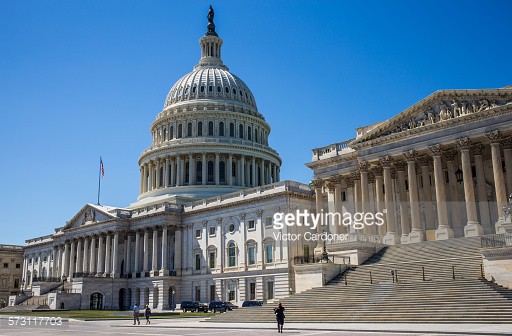When I taught world history to freshmen in high school, I once asked my students to reflect upon the longevity of the Roman Republic (it lasted over 500 years, ending in the first century BC, over twice as long as our Republic). In an effort to underscore how significant the end of the Republic must have been for citizens of first century Rome, I asked what I thought to be a loaded question: Who can imagine the United States ceasing to exist as a republic? To my great surprise, the hands went up — at least half of the class.
Perhaps my adolescent scholars didn’t quite grasp the implications of my question, but I recall at that age being far more optimistic about the future of my country. On the brink of the culmination of such a brutal campaign season, I am not about to encourage despair over the state of our public affairs. I will try to let you in on some good news.
Elections are the primary means by which most of us participate directly in the government of our cities, states and country. Given this political significance, shouldn’t we be taking them seriously?
My response is: “Certainly yes… and no.”
As I prepare to attend the Ignatian Family Teach-in this weekend, I am reminded by Catholic Social Teaching that ignoring my duties as a citizen, while enjoying the benefits of the rights afforded me, is like “building a house with one hand and tearing it down with the other.” (Pacem in Terris, #30)
Then how can I call our elections “unserious”?
I use “unserious” in the sense that my former professor, Fr. James V. Schall, SJ, used the term.1 Drawing from Aristotle, Schall would often remind his students that if humans were the highest beings, politics would be the highest activity. But even Aristotle did not assert that humans are the highest beings, so there must be something more serious than politics.
What Schall and Aristotle are getting at is that politics, as something practical, is less serious than contemplation, which relates to the divine. It is contemplation that is the real purpose of the human existence. Politics is merely a practical concern. It only interests us insofar as it helps us to our true end.
Thus, there is a Christian way to put politics into perspective that lends it a more hopeful lack of seriousness: namely, to recall God’s larger plan for humanity.2 In the midst of political anxiety, we can easily forget what is most important in our lives.
***
I want to explore two ways in particular that our political culture ignores the bigger picture. First, as my students reminded me, we often assume that the United States and our political project ought to and will endure forever; and second, we believe that our form of government is capable of producing real unity.3
With regard to the first, would our founding fathers even recognize our current form of government? Moreover, we can all agree that things political are broken; though there is a variety of opinion about the changes needed. It can be easy these days to imagine, as my students could, the end of our form of government.
As to the second, I find it difficult to imagine a few hundred elected officials forging true union for a country of over 300 million people of so many different cultures. Surely there are some common values that unite us and the federal government certainly has its role in peaceably settling disputes and differences, but must we rely on our government for unity?
***
If not in politics, where can one seek an enduring order and true unity? Here is the good news: there is a realm in which a just order will endure for all time. We call it the Kingdom of God. There is a source of perfect union with fellow pilgrims. We call it the Mystical Body of Christ.
Politics is an essential part of human life and the business of Christians just as much as anyone. But I cannot find my ultimate meaning or lasting happiness in politics. Even if America were to cease existing (as some are expecting from this election), we Christians ought not despair, for we are destined for another Kingdom.
- Fr. Schall has a book called On the Unseriousness of Human Affairs whose title alone is quite thought-provoking. ↩
- Charles Camosy (here) sees this election as a reminder of that plan: “The fact that both major candidates are horrifically flawed may serve as a good reminder of where, as Catholics, our true loyalties should lie. We are a pilgrim Church on a journey to a Kingdom that is not of this world. ↩
- In preparation for the aforementioned Ignatian Family Teach-in, our delegation watched the video they show during the tour of the Capitol building. The video ends, referring to the Capitol (and by extension, Congress): “These walls have been tested. Their strength does not crack. E pluribus unum. Out of many one.” (Queue patriotic fist pump.) ↩


